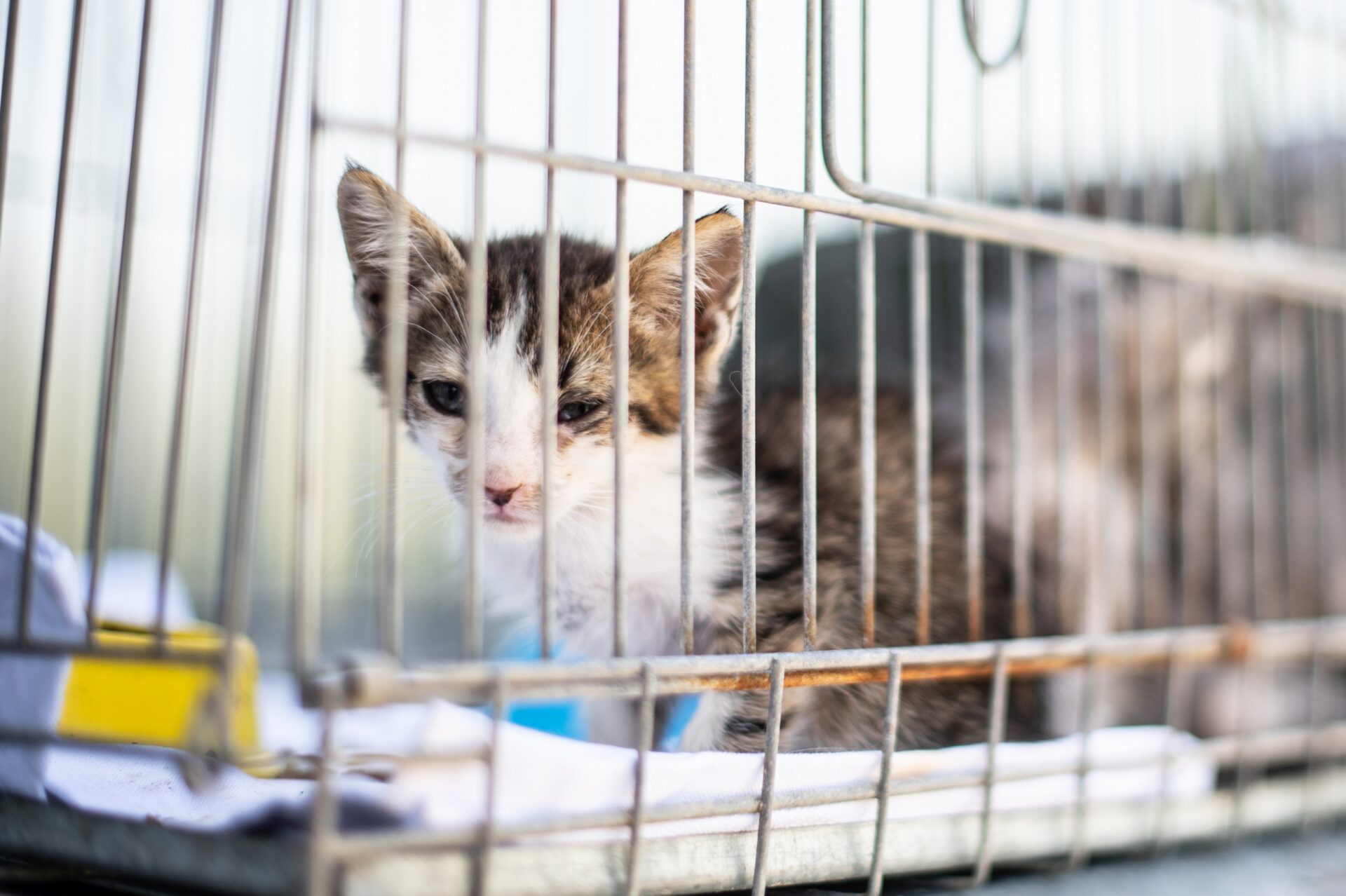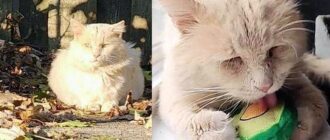When Rainbow first arrived at the Bridgend Adoption Centre, she weighed only 0.49 kg – just a tiny little kitten. As a stray, she was taken from a wild colony where she lived with her mother and siblings. But when Rainbow was taken in by her new owner, things started to go downhill fast.
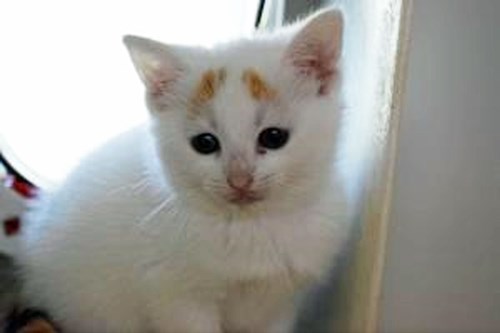
Overfeeding and the individual parasite treatment her owner tried to give her didn’t contain enough medication to treat her size, so she started gaining weight rapidly.
Because of her size, Rainbow was unable to groom or clean herself properly after toileting… which led to her eyes becoming red and crusty.
In just a short period, Rainbow changed beyond recognition – she now weighs 12.7 kg, which is three times the average weight for a cat. And because of her size, she requires special care and attention.
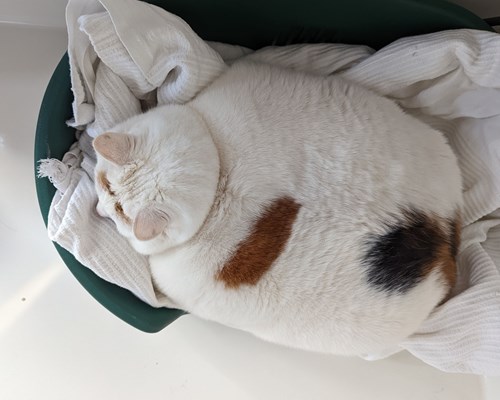
The team at the Bridgend Adoption Centre is doing everything they can to help Rainbow lose weight and get healthy again, but it’s going to be a long road ahead.
However, they have to be very careful as losing weight too quickly could put her health at risk. They are currently feeding her a special diet and monitoring her closely.
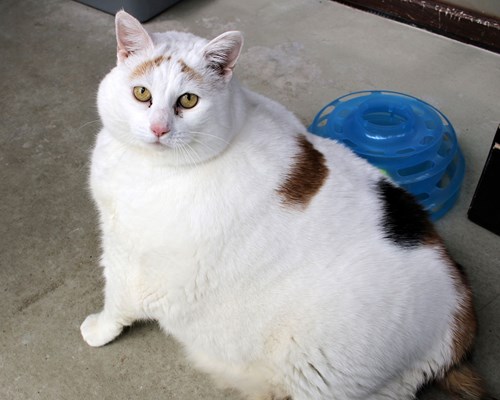
Sue Dobbs, the sanctuary’s manager, said that when they got her, she was so thin that they weren’t sure she would survive. Now they are looking at a cat whose joints and organs are under a lot of pressure from the weight. She is also so big that she can’t even play or run away from danger if she gets into a difficult situation.
“Rainbow was beaten, itchy, and dirty,” Sue said pitifully. “She couldn’t act like a cat: she couldn’t hunt, run, play or hide. This made her softly spoken and sad.”
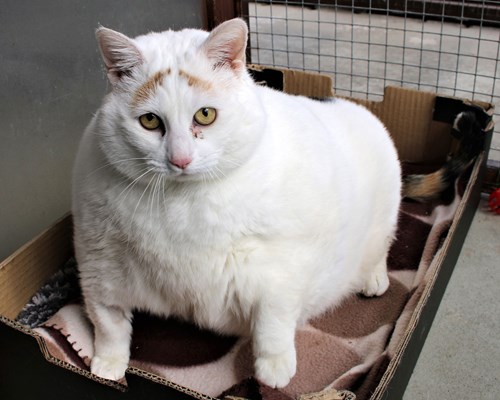
“Over-indulging your cat with food may be tempting, but it will do more harm than good in the long run,” said Dr. Sarah Elliott, Cats Protection’s central veterinary officer.
“Owners often give their cats too much food out of love or to make them feel like part of the family. However, obese cats are at a higher risk for developing diabetes, joint problems, and urinary tract infections.”
